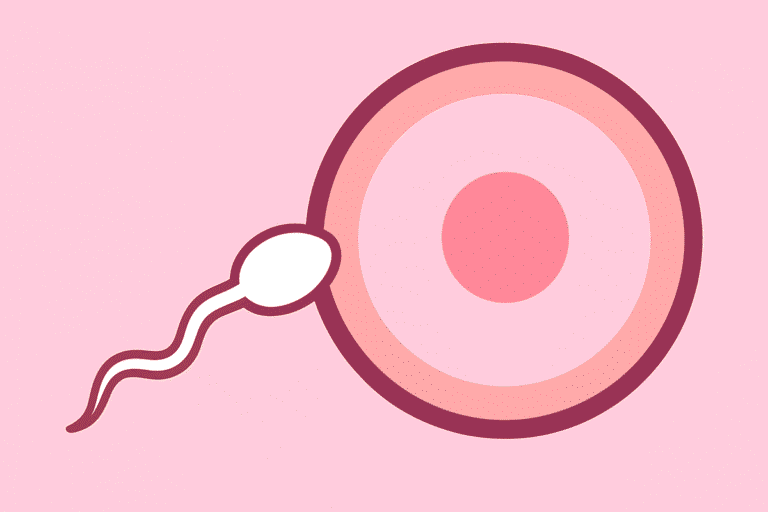In today’s fast-paced world, stress has become a part of our daily lives. But did you know that your body actually produces a hormone in response to stress? It’s called cortisol, often known as the “stress hormone.” While cortisol is essential for survival, chronically high levels can take a serious toll on your physical and emotional well-being.
In this article, we’ll explore what cortisol is, the symptoms that may indicate your cortisol levels are too high, the underlying causes, and what you can do to manage it naturally.
Also read: What Is Female Orgasmic Disorder?
What Is Cortisol?
Cortisol is a steroid hormone produced by the adrenal glands, which sit right above your kidneys. It plays a crucial role in:
- Regulating your metabolism
- Controlling blood sugar levels
- Supporting the immune system
- Managing how your body uses carbohydrates, fats, and proteins
- Reducing inflammation
- Responding to stress (the “fight or flight” response)
Under normal circumstances, cortisol levels follow a daily rhythm—higher in the morning to help you wake up and get moving, then gradually lowering throughout the day.
But when your body is constantly under stress, this rhythm can be disrupted, leading to excess cortisol production over time. And that’s when the problems start.
Symptoms of High Cortisol Levels
Elevated cortisol levels can manifest in a variety of ways, affecting nearly every system in the body. Let’s break down the most common symptoms:
1. Weight Gain—Especially Around the Abdomen
One of the hallmark signs of high cortisol is abdominal weight gain. You may notice fat accumulating around your midsection, even if your diet and exercise routine haven’t changed much. Cortisol triggers fat storage, especially in the visceral (belly) area, which is the most dangerous type of fat.
2. Fatigue and Trouble Sleeping
Even though cortisol is supposed to give you energy in the morning, chronically high levels can disrupt your sleep cycle. You might feel “tired but wired”—exhausted during the day but unable to fall asleep at night.
3. Anxiety, Irritability, or Mood Swings
Cortisol directly impacts your brain’s neurotransmitters. Excess levels can lead to anxiety, depression, mood swings, and brain fog. You may also feel overwhelmed or more emotional than usual.
4. High Blood Pressure
Cortisol narrows your arteries and increases the heart rate, leading to elevated blood pressure over time. Left unmanaged, this can increase your risk of heart disease and stroke.
5. Frequent Illness or Infections
While cortisol has anti-inflammatory effects in the short term, chronic elevation can weaken your immune system, making you more susceptible to infections and longer recovery times.
6. Acne and Skin Problems
Increased cortisol can lead to hormonal imbalances that cause acne, particularly on the face, back, and chest. It can also make the skin thin, bruise easily, or heal slowly.
7. Digestive Issues
Cortisol can suppress digestion, causing bloating, constipation, or irritable bowel syndrome (IBS) symptoms. It slows down gastric emptying and can lead to a “nervous stomach.”
8. Muscle Weakness and Bone Loss
High cortisol levels break down muscle tissue and can lead to osteoporosis by reducing bone formation over time. You may notice muscle fatigue or joint pain without any physical cause.
9. Irregular Menstrual Cycles and Low Libido
Women with high cortisol may experience irregular periods, reduced fertility, or loss of libido. In men, it can result in lower testosterone and sexual dysfunction.
10. Memory Problems and Poor Concentration
Cortisol affects the hippocampus, the part of the brain involved in learning and memory. Over time, high levels can contribute to brain fog, forgetfulness, and difficulty focusing.
What Causes High Cortisol Levels?
There isn’t a single cause for elevated cortisol. It can result from lifestyle factors, medical conditions, or environmental stressors. Here are the most common culprits:
1. Chronic Stress
The most common reason for elevated cortisol is ongoing psychological or emotional stress—from work, relationships, financial pressure, or trauma. Your body can’t always tell the difference between a real threat and a stressful email.
2. Poor Sleep or Sleep Disorders
Sleep deprivation is a major trigger for cortisol overproduction. Conditions like insomnia, sleep apnea, or simply getting too few hours of rest can throw your hormonal balance out of sync.
3. Overtraining or Excessive Exercise
Exercise is generally good for cortisol regulation, but too much high-intensity training without proper recovery can elevate cortisol instead of lowering it.
4. Caffeine and Stimulants
Excessive caffeine or stimulant use, especially late in the day, can increase cortisol secretion and disrupt your natural rhythms.
5. Blood Sugar Imbalances
Eating a diet high in sugar or refined carbs causes spikes and crashes in blood glucose, which can prompt your body to release cortisol to bring blood sugar back into balance.
6. Inflammation or Chronic Illness
Autoimmune diseases, chronic pain, or inflammation can keep your body in a state of stress, causing cortisol levels to rise in response.
7. Adrenal Tumors or Cushing’s Syndrome
In rare cases, high cortisol levels are caused by Cushing’s syndrome, a disorder in which the adrenal glands produce too much cortisol due to tumors or certain medications like corticosteroids.
8. Medications
Long-term use of corticosteroids (such as prednisone) for conditions like asthma, arthritis, or lupus can lead to high cortisol levels. Birth control pills can also affect hormone balance in some individuals.
How Is High Cortisol Diagnosed?
If you or your doctor suspect high cortisol levels, several tests can help confirm it:
- Saliva Test (usually done at night when cortisol should be low)
- Blood Test
- 24-Hour Urine Test
- Dexamethasone Suppression Test (used to detect Cushing’s syndrome)
These tests help determine whether your cortisol levels are abnormally elevated and whether further evaluation is needed.
Natural Ways to Lower Cortisol Levels
The good news is that many lifestyle changes can help bring your cortisol levels back into balance. Here are proven ways to lower cortisol naturally:
1. Practice Stress Management Techniques
- Meditation, deep breathing, and yoga can reduce the production of cortisol.
- Journaling and mindfulness practices help calm the mind and reduce stress.
2. Get Quality Sleep
Aim for 7–9 hours of quality sleep each night. Establish a calming bedtime routine and limit screen time before bed.
3. Exercise Moderately
Engage in regular physical activity, like walking, swimming, or cycling. Avoid overtraining and always prioritize rest and recovery days.
4. Balance Your Diet
Eat a whole-foods, nutrient-rich diet that supports blood sugar balance:
- Include protein and healthy fats with every meal.
- Eat fiber-rich vegetables and complex carbs to avoid sugar spikes.
- Reduce your intake of sugar, caffeine, and alcohol.
5. Support Your Gut Health
A healthy gut helps regulate hormones. Include probiotic-rich foods (like yogurt, kefir, kimchi) and prebiotic fiber (like bananas, garlic, and oats).
6. Take Adaptogenic Herbs
Herbs like ashwagandha, rhodiola, and holy basil may help lower cortisol and improve your stress response.
7. Stay Hydrated
Even mild dehydration can increase cortisol levels. Drink enough water throughout the day to keep your body functioning optimally.
8. Set Boundaries and Reduce Overload
Sometimes the best way to reduce cortisol is to say “no” more often. Avoid overcommitting, take breaks, and give yourself time to rest and reset.
When to See a Doctor
If you’ve been experiencing persistent symptoms like weight gain, fatigue, anxiety, or irregular periods, and lifestyle changes aren’t helping, it’s time to consult your doctor. Hormonal imbalances like high cortisol can be managed—but early diagnosis is key.
You may be referred to an endocrinologist, a specialist who deals with hormone disorders, to get to the root cause and start an appropriate treatment plan.
Final Thoughts
Cortisol is essential for survival, but when it stays elevated for too long, it can wreak havoc on your health. From sleep issues and anxiety to weight gain and immune dysfunction, the symptoms of high cortisol are real and impactful.
The good news is that with early awareness, lifestyle changes, and targeted support, you can restore balance to your hormones and feel like yourself again. If you’re feeling overwhelmed, tired, or “off,” don’t ignore the signs—your body might be trying to tell you it’s time to slow down and heal.




